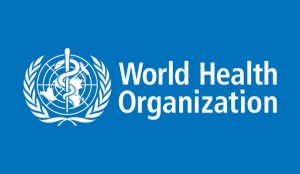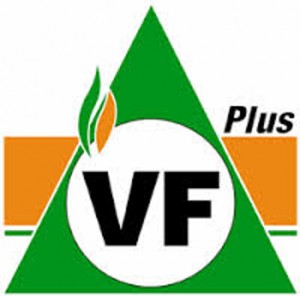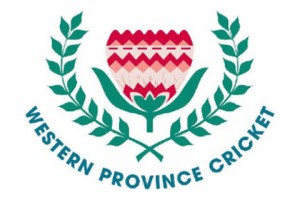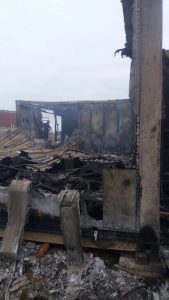Today, we are proud to announce more details on the Western Cape Government’s Better Living Model Game Changer.
This project will see the Western Cape Government, together with the City of Cape Town and our private sector partners, plan, design, fund, and develop the former Conradie Hospital 22 hectare site into a sustainable, and affordable mixed-use, mixed-income and mixed-tenure neighbourhood.
We are proposing the construction of more than 3000 residential units, as well as business premises, schools, and safe, green public spaces on this site.
We plan to be breaking ground on this exciting new development by early 2018.
This project will change the game when it comes to how we optimize our assets, and unlock the economic potential of state-owned property in the future.
Most importantly, this development will contribute towards addressing the spatial legacies of apartheid, which still remain today and are the cause of many social problems in the Western Cape.
Currently, there is a shortage of well-located affordable houses close to employment and economic opportunities in the City of Cape Town. This challenge is compounded by the thousands of people moving, from rural areas and other provinces, to the City each year in search of a better life.
The Better Living Model Game Changer will assist in alleviating this problem by creating affordable, integrated housing opportunities close to the Cape Town CBD.
In doing so, we will also be able to showcase how partnerships between government and the private sector can be leveraged to deliver well located housing opportunities across the province.
There have been a number of successful examples of mixed use developments built by government and the private sector in other countries, which we can draw lessons from.
However, we will be developing our Better Living Model fully cognisant of the particular development needs and challenges facing South African cities.
We believe our Game Changer could therefore serve as a model for other municipalities faced with apartheid-era spatial challenges in the future.
This game changing development will result in:
- A high-density, high-rise, residentially led development
- Commercial and retail business opportunities;
- A safe and secure environment;
- Active streets, low car dependencies and walkable living spaces
- Parks and other well-designed recreational spaces;
- New schools;
- The integration of different communities and income groups; and
- Government and public services being brought closer to citizens.
This multi-billion rand investment will also stimulate economic growth and jobs – we estimate that during the construction phase, an estimated 2 000 jobs will be created as a direct result of the construction activities.
It is estimated that, for every R1.1 million rand investment, 1 job is created within the construction phase.
There is also a growing need in the Metro for decentralised centres of business, as with the increase in office accommodation in the southern suburbs of Claremont, Rondebosch, and Newlands. People are increasingly looking to work outside of the CBD to avoid traffic congestion and travel times in and out of the City during peak times.
This development will offer some 10 000 m² of retail space and some 14 500 m² of commercial space, which will stimulate small business growth in the area.
The Department of Human Settlements has indicated that, out of the more than 3000 residential units built, 49% of the residential development must be allocated to grant-funded housing, which will consist of social housing, FLISP (Finance Linked Individual Subsidy Programme) housing and rent-to-buy housing units.
The remaining 51% of the residential units will be made available to the open market.
As we know, there are thousands of people living in the province who earn too much to receive a free house but who do not qualify for a bond to buy one.
We believe this development will make a major contribution towards providing this group of people a meaningful housing opportunity and will help reduce the current housing backlog.
We have also focused on addressing the potential increased traffic congestion resulting from this development.
One of the benefits of this site’s location is its close proximity to established public transport modes, including access to the Metrorail service, and existing public transport routes. There is also the potential for the expansion of other public transport modes, for example the My Citi bus service, which will significantly reduce residents’ reliance on private vehicles.
The site will also have interconnected footpaths and cycling infrastructure as part of an integrated non-motorised transport plan for the area.
The development will include schools and a number of parks and green spaces to address the educational and recreational needs of households moving into the area.
The project will also see the implementation of Green technology for energy, water, and waste management, adding further to its efficiency and sustainability.
Critical to the success of this development is the involvement of the private sector.
We have already issued, in various media publications, a request for an Expression of Interest (EOI) for the site, seeking input and interest from prospective future bidders including social housing institutions, financiers, investors and property developers.
All interested parties have been invited to a briefing session later this week (25th of February) where further information will be shared regarding the project.
An extensive public participation process with all interested parties will also take place over the next few months.
The Western Cape Government has dedicated resources to the Better Living Model Game Changer, and is committed to finding new and innovative ways to better leverage government properties for the most economic gains.
We look forward to working closely with partner departments, the City of Cape Town, and our private sector partners in successfully implementing this residentially led development over the next few years.









